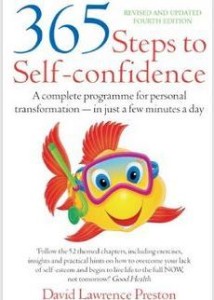The way you talk to yourself is crucial. It influences your state of mind, your mood and your behaviour, and therefore the circumstances of your life.
Frequently your self-talk – the ongoing conversation in your head – sounds like a series of questions since we habitually interrogate ourselves: ‘What should I do next?’ ‘How should I react to this?’ ‘Why did I do that?’ ‘Why was I so stupid?’ And the unconscious is designed to come up with a response, even if the question is totally groundless.
The unconscious has no intelligence. It is not capable of judging the validity of a question. Its job is to search its data files for an answer, and it always finds one. For instance, if you ask: ‘Why am I so unlucky?’ it will give you an answer even if you are not particularly unlucky, which inevitably makes you feel worse.
The answer you get depends on the ‘presupposition’ behind the question. Presupposition means ‘assumption’. Presuppositions don’t have to be deliberate or even conscious, and it’s important that you make yourself aware of them.
When you ask yourself a question with an positive presupposition, your unconscious searches its databanks and comes up with a positive answer. For example, ask:
- How could I be happier?
- How can I solve this problem?
- What can I learn from this?
- What can I do to improve?
and your unconscious looks for evidence that you will be happier, things are going well, and you are learning from your experiences and so on. Then it suggests ways of making things better.
Teachers, counsellors and coaches know this very well. They are trained to ask ‘powerful’ questions, those that interrupt their students’ and clients’ negative thinking patterns and move them forward.
One way to use this principle is to change ‘Why?’ questions to ‘How?’ ‘Why’ questions often take your mind back to the past, focus on problems, and keep you stuck there; ‘How’ questions such as ‘How can I solve this?’ move you forward.
For example, imagine a tennis player who has just lost – again – to an opponent who he knows he should be able to beat. ‘Why can’t I beat X?’ he asks, exasperated. ‘Why is he so much better than me?’ A little voice in his head responds:
- ‘Because you’re not as talented.’
- ‘He’s physically stronger than you.’
- ‘He’s quicker than you.’
- ‘He’s mentally stronger than you.’
- ‘He’s younger/older than you.’
- ‘You’re just not as good.’
Now he’s really down in the dumps, having convinced himself there’s no way he can ever beat him.
Now consider these questions:
- How can I beat him next time?
- What must I do?
- How can I improve?
- What are his weaknesses? How can I exploit them?
Whether you’re asking silently or out loud, ask in a firm voice that pre-supposes a helpful response. Now the mind has something constructive to work on. ‘Change your tactics… practise your second serve… hit more shots to the backhand… stay back from the net… eat right before the match … etc. etc.’
Sometimes the answer comes quickly, but not always. The unconscious rarely works to deadlines, but answers do come, often when least expected – when mowing the lawn, doing the cleaning or driving to the shops. You can develop this faculty by asking for intuitive guidance and asking for solutions to your problems. Now the unconscious has something positive to work on.
Powerful questions focus your attention on solutions rather than problems, help bring the Law of Attraction into operation, and are a characteristic of the thought processes of all happy and successful people. It’s a simple switch to make, so start now. Use the Four Step Method. Be aware of the questions you ask yourself. Stop negative questions. Replace them with positive questions. And keep doing it. I promise you, your life will quickly change for the better.
©David Lawrence Preston, 4.4.2016
Follow me on Facebook and Twitter @David_L_Preston
How To Books, 2010

Leave a Reply